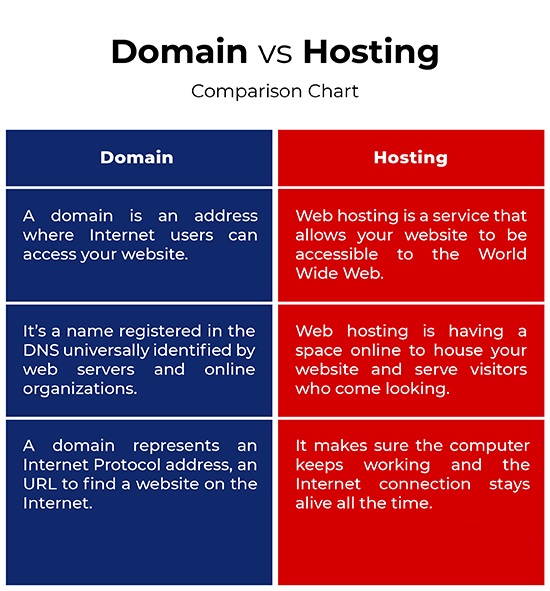The Difference between Domain and Hosting
When starting a website, it’s essential to understand the difference between domain and hosting. These two terms are often used interchangeably, but they serve different purposes in the world of web development. In this article, we will explore the distinctions between domain and hosting to help you make informed decisions for your website.
What is a Domain?
A domain is the web address that users type into their browser to access your website. It serves as the online identity of your website and is unique to each website on the internet. Domains are made up of two parts: the top-level domain (TLD) and the second-level domain. The TLD refers to the extension of the domain (e.g., .com, .net, .org), while the second-level domain is the unique name chosen by the website owner.
Types of Domains:
- Generic Top-Level Domains (gTLDs): These are the most common types of domains and include extensions like .com, .net, .org, .edu, etc.
- Country-Code Top-Level Domains (ccTLDs): These domains are specific to a particular country or geographic region (e.g., .us, .uk, .ca).
- New Generic Top-Level Domains (ngTLDs): These are newer extensions introduced to provide more domain name options (e.g., .tech, .blog, .design).
Choosing the right domain is crucial for establishing your online presence and branding. When selecting a domain, consider factors such as relevance to your website content, memorability, and SEO implications.
What is Web Hosting?
Web hosting is the service that allows your website to be accessible on the internet. When you create a website, all the files, images, and content need to be stored on a server to be viewed by visitors. Web hosting providers offer storage space on servers, along with other services like server maintenance, security, and technical support.
Types of Web Hosting:
- Shared Hosting: This type of hosting involves sharing server resources with other websites, making it a cost-effective option for small businesses and personal websites.
- VPS Hosting: Virtual Private Server hosting provides dedicated server resources within a shared environment, offering more control and flexibility.
- Dedicated Hosting: With dedicated hosting, you have an entire server dedicated to your website, providing maximum performance and customization options.
- Cloud Hosting: Cloud hosting uses multiple connected servers to host websites, offering scalability and reliability.
Choosing the right web hosting plan is crucial for the performance and security of your website. Factors to consider include server reliability, uptime guarantee, security features, technical support, and scalability options.
Key Differences between Domain and Hosting:
- Ownership: A domain is owned by the website owner and is renewable annually, while web hosting is provided by a hosting company on a subscription basis.
- Function: The domain serves as the web address of the website, while hosting stores and serves the website’s content to visitors.
- Renewal: Domains need to be renewed annually to maintain ownership, while web hosting needs to be renewed periodically to keep the website live.
- Customization: Domain settings can be customized to point to different servers, while hosting allows for customization of server settings and configurations.
- Importance: Both domain and hosting are essential components of a website, with the domain serving as the online identity and hosting ensuring the website is accessible to users.
By understanding the difference between domain and hosting, you can make informed decisions for your website’s online presence. Remember to choose a domain name that reflects your brand and select a reliable web hosting provider to ensure your website is secure and accessible to visitors.
